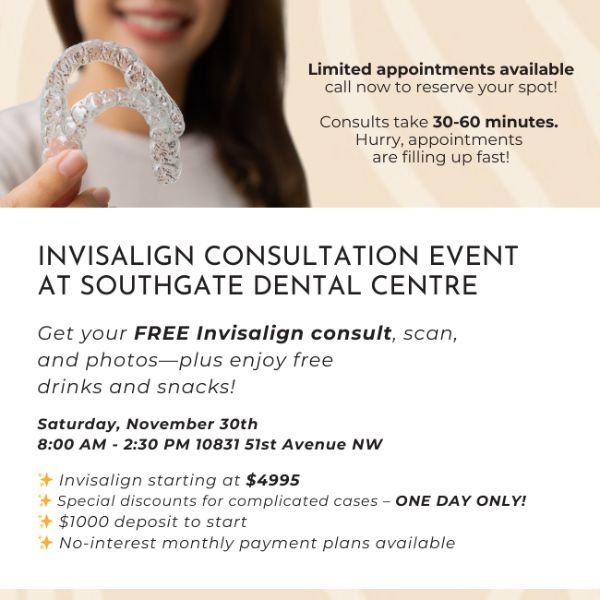If you’re getting prepared for a dental procedure, you may find yourself wondering what will happen regarding numbing. What if you just have a little tooth pain? Is it needed for every procedure, and will you get any? If so, how long does numbing last at the dentist?
It depends on the type of local anesthetic used during your procedure. Usually, you can expect the sensation to fade within a few hours. But sometimes, it may take until the next morning for your mouth to feel completely normal again. Shorting-acting local anesthetic can last 1–3 hours, long-lasting local anesthetic can last 2–5 hours, and extra long-lasting local anesthetic can last up to 8 hours.
Your dentist will always consult with you whether you want the anesthetic or how profound you want the anesthesia to be.
Why Does a Dentist Numb Your Mouth?
When dentists are operating in your mouth, we want you to feel safe and comfortable. But depending on the type of procedure, it may be difficult to feel relaxed if we don’t take additional precautions. That’s why we numb the area we’re working on. Numbing helps to mask any discomfort or irritation you might notice during procedures.
We’ll usually numb the area for procedures like:
- Fillings
- Root canals
- Tooth extractions
- Gum surgery
- Wisdom teeth removal
- Crowns
- Sometimes dental cleanings
Numbing also helps prevent flinching or wincing, and you don’t have to feel any unnecessary discomfort. And guess what? There are several types of numbing agents available.
Are There Different Types of Numbing Agents?
It’s important to note that dentists don’t always numb the area. We’ll have to consider a few things, like your medical history and the type of procedure you’ll need. Then, we’ll decide between one of several options, including:
- Topical anesthetics: Usually in the form of a gel or liquid, these temporarily numb the surface area where they’re applied. Used mostly prior to giving you an injection to make that procedure more comfortable.
- Short-acting local anesthetics: These injections are used for short-duration procedures, such as a small filling. This can last 1–3 hours.
- Long-acting local anesthetics: These injections are used for procedures that take a greater amount of time, used for technical procedures such as crowns. This can last from 2–5 hours.
- Extra long-acting local anesthetics: These injections are used for procedures that take a greater amount of time, mostly used for tooth extractions where you want pain control afterwards. This can last up to 8 hours.
Is It Safe to Get Dental Numbing?
Dental numbing is safe when a trained dental professional administers it, but it does have very minimal risks including elevated pulse rate and blood pressure, paraesthesia to the area due to nerve damage by the sharp needle, and soreness of the injection site. It’s important for people with heart conditions and high blood pressure to discuss this with their dentist.
Here at Southgate Dental Centre, we’ll consider several things to determine the right approach for you. We’ll think about:
- What procedure you need
- Your medical history
- How anxious you are about the procedure
- The location in your mouth of the procedure (back teeth typically take more anesthetic)
- Your weight
- Your age
We’ll take extra care to calculate the exact dosage you need. And don’t worry—we closely monitor for any signs of discomfort throughout the procedure. We’re here to help, after all!
Dental Numbing Side Effects
Even though dental numbing is completely safe, it might not feel completely natural at first. Your lips, tongue, and cheek might feel swollen or thick, and you might notice a tingling sensation where the anesthetic is applied. This is all completely normal.
You’ll probably feel like the entire area is swollen and may notice a bitter taste in your mouth. These are signs that your body is noticing something odd—it’s completely okay.
However, sometimes there may be other symptoms. If you’re starting to feel dizzy or develop a headache, let your dentist know immediately. Remember: we want to prioritize your comfort and safety, so let us know what’s going on, and we can help.

What to Expect After Dental Numbing
Once your procedure is over, you might feel strange. But these sensations are temporary! They’ll disappear as the numbing agent works out of your system.
After everything is finished and you’re home, it can help to:
- Avoid eating until the numbness has completely worn off to prevent biting your tongue or cheek. For drinking, a straw is safer.
- Stay hydrated to help flush the numbing agent out of your system more quickly.
- Avoid hot foods or beverages. They can burn your mouth, and if you still don’t have total feeling, you may not notice until the damage is done.
- Being active can help flush the aesthetic out of your body more quickly, while resting and relaxing can make it last longer.
- Take an approved painkiller that you can tolerate for any discomfort you have in your jaw joint or in the injection site.
Contact your dentist if you notice anything odd or the numbing doesn’t go away. They may have some advice on swiftly recovering.
Will I Need Dental Numbing?
Here at Southgate Dental Centre, we want each one of our patients to feel comfortable during any procedure. If you have a dental procedure with us coming up, don’t hesitate to reach out to us. We can examine the area and give you our professional opinion on what to expect: if you need local anesthetic or not, and if you do, how much.
You’re always welcome here, so request an appointment with us today!



